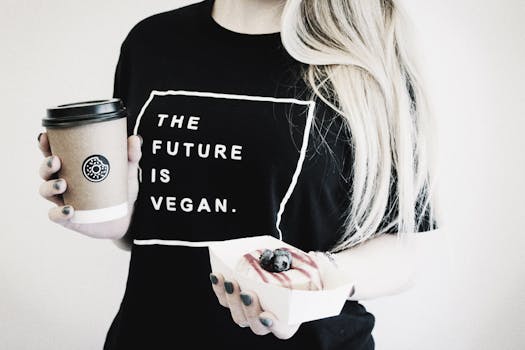
Sustainable Brands Making a Difference in the Industry
Takeaways: Sustainable brands are not just a trend; they represent a fundamental shift in consumer behavior towards eco-consciousness. By prioritizing environmental impact, ethical sourcing, and social responsibility, these brands are leading the charge for a better future. This article explores several standout companies that are making significant contributions to sustainability.
As awareness of environmental issues grows, consumers are increasingly seeking out brands that prioritize sustainability. This shift is not merely a passing trend; it signifies a profound change in how businesses operate and the values they uphold. In this article, we will delve into some of the most impactful sustainable brands that are making a difference in various industries—from fashion and beauty to food and technology.
Why Sustainable Brands Matter

Sustainable brands focus on minimizing their environmental footprint, promoting ethical labor practices, and contributing positively to their communities. This approach not only benefits the planet and society but also resonates with consumers who are increasingly making purchasing decisions based on a brand’s sustainability practices.
Examples of Sustainable Brands Leading the Way

1. Patagonia
Patagonia is a pioneer in the outdoor apparel industry, known for its commitment to environmental activism. They utilize recycled materials in their products and donate a percentage of their profits to environmental causes. Patagonia’s “Worn Wear” program encourages customers to repair, reuse, and recycle their gear, promoting a circular economy.
2. Allbirds
Allbirds has revolutionized the footwear industry with their sustainable shoes made from natural materials like merino wool and eucalyptus tree fibers. Their eco-friendly supply chain and commitment to carbon neutrality have garnered a loyal customer base that appreciates their dedication to sustainability.
3. The Body Shop
The Body Shop has long been a leader in ethical beauty. Their commitment to cruelty-free products, fair trade sourcing, and community trade initiatives has set the standard for responsible beauty brands. They actively campaign against animal testing and promote environmental sustainability in their packaging and ingredients.
4. Beyond Meat
Beyond Meat is transforming the food industry by offering plant-based alternatives to meat. Their products are designed to have a lower environmental impact than traditional meat production, addressing issues like greenhouse gas emissions and resource depletion. Beyond Meat’s growth is a testament to the rising demand for sustainable food options.
The Impact of Sustainable Brands on Industry Standards

Moreover, sustainable brands often leverage transparency as a key component of their marketing strategy. By openly sharing their sourcing practices, environmental impact, and labor policies, they build trust with consumers. This transparency is essential in an era where consumers are increasingly skeptical of corporate claims.
Conclusion
The rise of sustainable brands marks a significant shift in consumer behavior and industry standards. As more companies embrace sustainability, the collective impact can lead to a healthier planet and more equitable society. By supporting sustainable brands, consumers are not just making a purchase; they are contributing to a movement towards a more responsible and sustainable future. As we look ahead, it is clear that sustainable brands are not just making a difference—they are reshaping the industry for the better.




